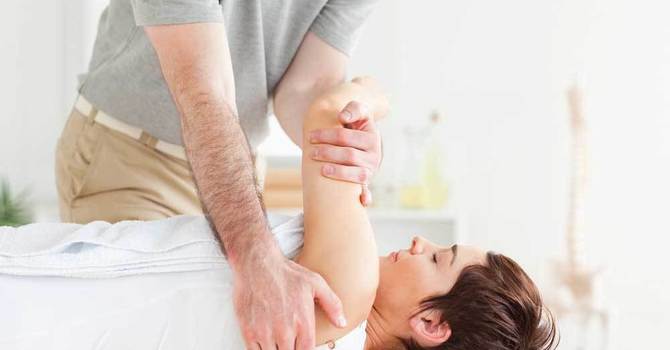
As summer winds down and backpacks get packed, the back-to-school season signals a fresh start—for academics, athletics, and routines. At Skare Spine & Performance, we often see a spike in overuse injuries, fatigue, poor sleep, and stress-related complaints in kids and teens (and even parents ) as the school year ramps up.
Whether your child is a high school athlete, a weekend warrior, or just trying to stay healthy during a busy academic schedule, now’s the perfect time to set the foundation for a strong and successful school year.
Here’s your Back-to-School Health Guide—covering key tips on nutrition, recovery, injury prevention, and overall wellness.
1. Create Consistent Routines (That Actually Work)
The transition from summer to school can throw off sleep cycles, eating patterns, and even mood. Establishing routines early helps regulate hormones, supports immune health, and promotes better academic and athletic performance.
Tips:
- Set a bedtime and wake-up time that allows for 8–10 hours of sleep (especially for teens).
- Limit screens 1 hour before bed to encourage melatonin production.
- Prep healthy lunches and snacks the night before to reduce stress in the morning.
Encourage 10–15 minutes of daily movement before school (a walk, mobility work, or light stretching can do wonders).
Pro tip: As the seasons allow, try to get outside for that 10-15 minute walk to see the sun and set your circadian rhythm before sitting inside for the next 8 hours.
2. Prioritize Smart Nutrition for Growing Bodies
School and sports demand brain power, stamina, and rapid recovery—all of which require quality fuel. Nutrition is one of the most critical aspects of mental and physical performance and recovery.
What to Focus On:
- Protein: Critical for growth, recovery, and blood sugar stability. Include high-quality sources like steak (nature’s super food), bee, eggs, Greek yogurt, chicken, turkey, beans, and protein smoothies. Aim for at least 30 grams of protein per meal.
- Healthy fats: Avocados, nuts, seeds, olive oil, and omega-3-rich fish like salmon help brain development and reduce inflammation.
- Complex carbs: Sweet potatoes, fruit, and starchy vegetables fuel both the classroom and the field.
- Hydration: Dehydration affects focus, mood, and performance. Aim for half their body weight in ounces of water daily. Add electrolytes during hot practices or tournaments.
We often get asked about supplements, and while they should be personalized to your body, almost every person and athlete can benefit from Vitamin D, Magnesium, Fish Oil, Creatine, and a multi-vitamin. These cover most of your bases to help keep your joints, muscles, and nervous system healthy.
Avoid: Excess processed sugar, energy drinks, and skipping meals—especially breakfast, which is crucial for morning focus and performance.
3. Support Sleep and Recovery
Sleep is when growth happens—literally and figuratively. For kids and teens, poor sleep can lead to lower grades, increased injury risk, and longer recovery times.
Sleep and Recovery Tips:
- Avoid late-night practices or screen time when possible.
- Ensure the bedroom is cool, dark, and quiet.
- Encourage a simple bedtime routine like light stretching, a warm shower, or reading.
- Rest days are just as important as training days. Build in 1–2 full recovery days per week for athletes.
4. Prevent Injuries Before They Happen
A new school year often means new sports seasons. While most parents worry about concussions or broken bones, overuse injuries are far more common—and often ignored until they become serious.
Common Injuries We See in Student-Athletes:
- Shin splints
- Knee pain (Osgood-Schlatter, patellar tendinopathy)
- Shoulder or elbow pain (especially in throwing sports)
- Low back pain from poor core engagement or mobility deficits
- Muscle strains from lack of proper warm-up or recovery
- Ankle Sprains
- Headaches and neck tightness from prolonged poor posture from sitting in school
Prevention Tips:
- Encourage proper warm-ups (dynamic stretching and movement prep—not static stretching).
- Ensure off-season or pre-season conditioning focuses on mobility, stability, and strength—not just cardio or skill work.
- Get ahead of pain. If a young athlete is “just sore” every day or limping off the field, don’t ignore it.
We help athletes identify movement dysfunctions early so they don’t lead to bigger problems later in the season.
5. Don't Skip the Backpack Check
Backpacks that are too heavy, worn incorrectly, or poorly organized can contribute to postural issues and pain—especially in younger students.
Tips:
- The backpack should weigh no more than 10–15% of your child’s body weight.
- Use both shoulder straps and adjust so the pack rests in the middle of the back.
- Encourage students to use lockers or cubbies to lighten the load when possible.
If your child complains of neck, shoulder, or mid-back pain during the school year, their backpack might be part of the issue.
6. Mental and Emotional Health Matter, Too
Academic pressures, social changes, and sports commitments can create mental stress that impacts physical health. Encourage open conversations and be mindful of signs of anxiety, burnout, or excessive pressure.
Supportive Strategies:
- Help your child prioritize time management and say no to overcommitment.
- Encourage breaks during homework or study periods—movement boosts memory!
- Keep weekends somewhat restful—not just packed with tournaments or activities.
7. Know When to Ask for Help
If your child:
- Complains about recurring pain
- Is frequently exhausted or can’t recover between practices
- Is missing school or sports due to discomfort or fatigue
- Seems overly anxious about performance
…that’s your cue to reach out.
At Skare Spine & Performance, we offer a comprehensive approach to helping students feel, move, and perform better. From chiropractic care and soft tissue therapy to individualized rehab and recovery protocols, we’re here to support your family all school year long.
Let’s Start the Year Strong
The back-to-school season is a great time to hit the reset button—not just for academics but for overall health. Set the tone now, and your child will be more resilient and ready for everything the school year throws their way.
Need help navigating injuries, performance issues, or recovery support? Book an appointment today and let’s build a stronger school year together.

Nate Skare
Contact Me



